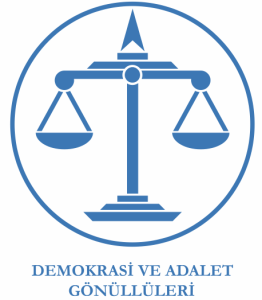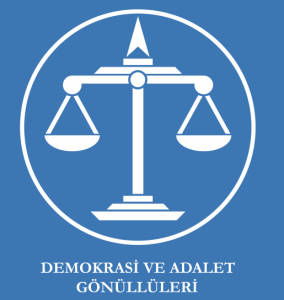Tekrar Değişen Internet Yasası ve HSYK
 Türkiye’nin bir hukuk devleti olmadığı artık resmileşti.
Türkiye’nin bir hukuk devleti olmadığı artık resmileşti.
Görülmemiş bir yolsuzluk skandalı devam etmekteyken, bugün (26 Şubat 2014), Cumhurbaşkanı Gül, Hakimler ve Savcılar Yüksek Kurulu Kanununda öngörülen değişiklikleri onayladı. Onaylarken de, HSYK’yı Adalet Bakanına yani hükûmete tâbi kılan Anayasa’ya aykırı bir çok hüküm barındırdığını da ifade etti.
Cumhurbaşkanı Gül, bu gibi durumları engellemek için kendisine verilen Anayasal sorumluluğu ve hakkı kullanarak değişiklikleri “hukuka” uygun hale getirilmek üzere Meclis’e iade edeceğine, onaylamayı seçti ve kanunun Anayasa Mahkemesi önüne götürülmesi yönündeki beklentisini ifade etti
Ayrıca dün gece yarısı, İnternet Üzerinden İşlenen Suçlarla Mücadele Kanunu (“İnternet Yasası”) da Meclis tarafından yeniden değiştirildi. Evet inanılmaz ama gerçek. Yeni değişiklikler yürürlüğe gireli daha bir hafta olmadan Internet Kanunu, Meclis tarafından bir kez daha değiştirildi!
Unutulmaması gerekir ki Internet Yasası’nın 8. Maddesi Avrupa İnsan Hakları Mahkemesi (“AİHM”) tarafından Avrupa İnsan Hakları Sözleşmesi’nin 10. Maddesine 2012 Aralık ayında kanun vasfı dahi taşımadığı tespit edilerek aykırı bulunmuştu. Türkiye bu sebeple bir de tazminata mahkûm edilmişti. Gazeteci hapisleri, YouTube, Vimeo, SoundCloud, Blogger, Vagus TV gibi sayısız siteleri ve hizmetleri kapatmasıyla zaten çok kötü bir şöhrete sahip olan Türkiye, hukukumuzu ve uygulamamızı daha iyi bir hale getirme fırsatını bir kez daha çöpe attı.
 İşte size son bir haftada iki kez değiştirilen Internet Yasası ile ilgili bilmeniz gerekenler:
İşte size son bir haftada iki kez değiştirilen Internet Yasası ile ilgili bilmeniz gerekenler:
- Mahkeme eğer arzu edilen amaca ulaşamayacağını düşünürse sadece URL (sayfa sayfa) bazlı değil, bütün bir web sitesine veya Internet hizmetine (YouTube, Facebook, Twitter, Ekşi Sözlük, Vimeo gibi) erişimi engelleyebilir. Diğer bir deyişle, YouTube, Facebook, Twitter farklı kullanıcılar tarafından defalarca yüklenen videolardan ötürü tamamen kapanabilir.
- Telekomünikasyon İletişim Başkanlığı (“TİB”) Başkanı, re’sen ve tamamen kendi takdiriyle özel hayatın ihlâli olarak nitelediği bir sitenin kapatılmasını emredebilir. Bu emrini Erişim Sağlayıcılar Birliği’ne (“Birlik”) gönderir ve Birlik bu emri derhal ve her halukarda en geç dört saat içinde uygulamak zorundadır. Başkan bu kararına 24 saat içinde mahkemeden onay almalıdır.
- Özel hayatının ihlal edildiğini iddia eden kimse mahkemeye dahi gitmeden doğrudan TİB’e içerikten çıkarma talebiyle başvurabilir. TİB bu talebi Birlik’e gönderir. Birlik bu talebi derhal ve her halukarda en geç dört saat içinde uygulamak zorundadır. Başvuruyu yapan kimse 24 saat içinde kapatılma uygulaması için mahkemeden onay almalıdır.
- Özel hayatının gizliliği dışında sebeplerden mağdur olduğunu iddia eden kimse doğrudan mahkemeye başvurabilir. Mahkeme talep ile ilgili 24 saat içinde içeriği koyanı ve yer sağlayıcıyı (YouTube, Facebook, Twitter vb.) dinlemeden karar verir. Ancak kapatılma kararından sonra içerik veya yer sağlayıcı bir üst mahkemeye itiraz edebilir.
- Internet Yasası’na aykırılık ile ilgili konuları inceleyecek olan Sulh Ceza Mahkemesi, Sayın Cumhurbaşkanı’nın bugünkü onayı sayesinde artık Adalet Bakanı’na yani hükûmete bağlanan HSYK tarafından belirlenir.
- Erişim Sağlayıcılar, bir özel hukuk tüzel kişisi mahiyetinde olacak olan Erişim Sağlayıcılar Birliği’ni kurmak zorundadır. Birlik’e katılmayan erişim sağlayıcının lisansı iptal edilir.
- Yer sağlayıcılar iki yıla kadar trafik bilgisini (IP adresi, hizmetin başlangıç ve bitiş zamanını, yararlanılan hizmetin türünü, aktarılan veri miktarını, abone kimlik bilgilerini) iki yıla kadar saklamak zorundadır. Siber güvenlikle ilgili bilgileri (?) TİB yer sağlayıcıdan isteyebilir.
